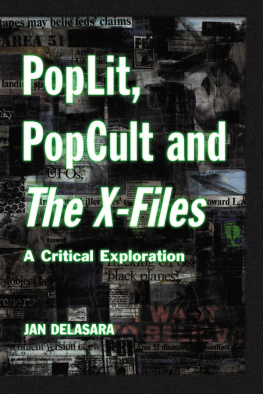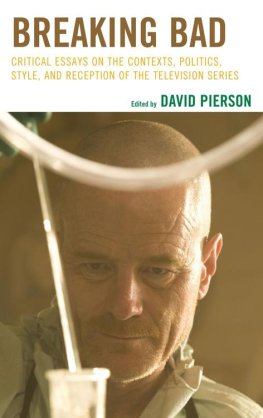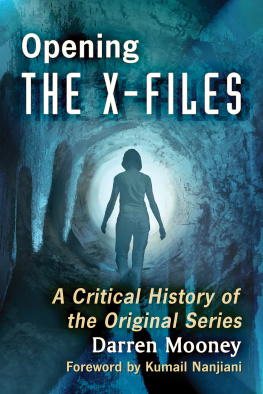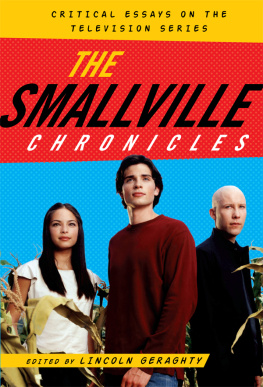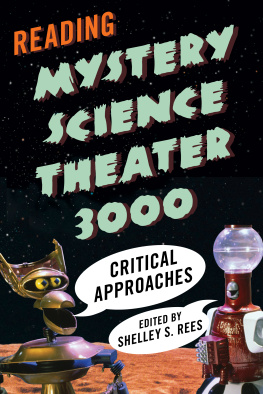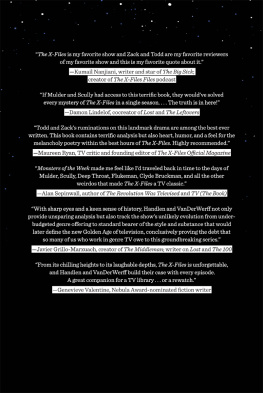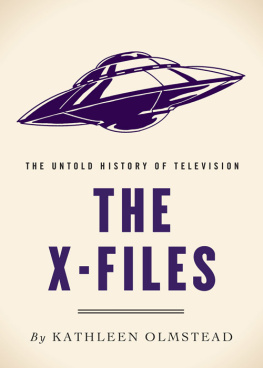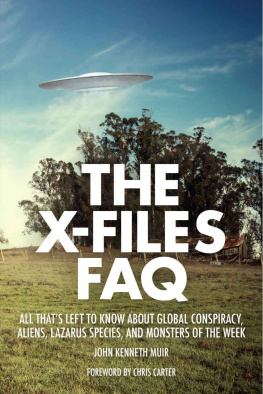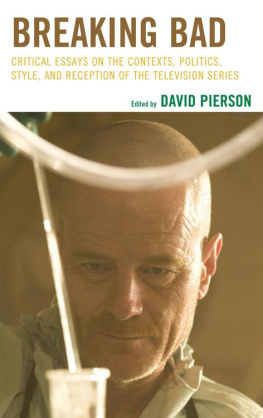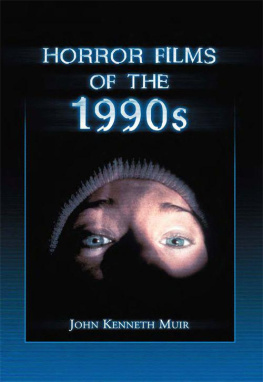
PopLit, PopCult and The X-Files
A Critical Exploration
by JAN DELASARA
McFarland & Company, Inc., Publishers
Jefferson, North Carolina, and London
LIBRARY OF CONGRESS CATALOGUING DATA ARE AVAILABLE
BRITISH LIBRARY CATALOGUING DATA ARE AVAILABLE
e-ISBN: 978-0-7864-8332-7
Cover background art 2000 Lauri Lynnxe Murphy
2000 Jan Delasara. All rights reserved
No part of this book may be reproduced or transmitted in any formor by any means, electronic or mechanical, including photocopyingor recording, or by any information storage and retrieval system,without permission in writing from the publisher.
McFarland & Company, Inc., Publishers
Box 611, Jefferson, North Carolina 28640
www.mcfarlandpub.com
Preface
Frye and Bakers Harpers Handbook to Literature denes popular culture as material culture or artistic works with a general appeal, works not dened as high culture. The rst example the authors offer is a television series. The Handbook further denes popular literature as that which transmutes mythic archetypes into the literary coin of a particular time and place. Such popular works can, the authors point out, be simple or quite complex. Genre ctions in particular (such as science ction or mystery) are often unsophisticated in the way they handle materials, although they need not be [emphasis added]. When [these works] are well-written and challenge the conventions of the genre, they sometimes rise to a more general and longer-lasting popularity. Academic acionados of popular literature are fond of reminding their skeptical colleagues that the Greek tragedies were a popular form, that Shakespeare himself was a writer of popular literature, and that Charles Dickens novels appeared in newspapers in serial form for popular audiences.
Although we cant know how The X-Files television series will be judged in the future, any critical study undertaken now will show future audiences and researchers how this popular literary work was received and understood in its own day. Many who pursue research in the area of popular literature realize that there is a wide gap between popular writing about the popular arts and the academic analysis and criticism of these forms. Fan-oriented writing, at its worst, is unfocused, supercial, anecdotal, personality-driven, and not text-centered. It is largely unconcerned about appreciation or aesthetic qualities. And the widely read reviews and entertainment pieces about popular television and motion pictures are brief, spontaneous and ephemeraleven though sometimes quite perceptive. On the other hand, academic writing about TV shows and movies can be quite specialized and denseand therefore it tends to play to small houses, buried in academic journals or shared with a few people in presentations at arcane professional conferences. This situation creates a space, even a need, for serious book-length examinations of popular dramatic texts and forms, analytical explorations that can be understood and even enjoyed by a non-specialized but literate and interested readership.
The television series The X-Files is a prime candidate for such an analysis. According to audience surveys, many of its viewers are college educated, but not necessarily by way of English programs. One aim of the study is to give such viewers a reference that covers from ve to seven years of the series and presents it as a comprehensible whole. Another aim is to analyze and interpret the series as text, assessing its aesthetic qualities and its socio-political position, while at the same time considering the relationship of its form and content to an expanded network of inuences which coexist and interpenetrate with it during the decade of the 1990s. I set out to write a wide-based but focused, informative and understandable study of a popular television series, using the terminology of literary analysis sparingly, employing a modicum of close reading when required, and applying some selected, relevant theoretical constructs. When necessary I dene constructs and literary terms; in other instances I assume that the context is clear enough to give the approximate meaning. Generally, I try to use a common-language vocabulary in readable sentences not overburdened with academic jargon.
The value of the nished study depends to a large extent on the relevant literary, social and theoretical connections it reveals. Making these connections, I believe, is important cultural work, because it promotes a dialogue and fosters ties between the academic world and the community of educated readers at large.
Further, I strongly believe in the value of taking a close look at popular forms of drama that have the impact of myth, which The X-Files does. When we examine these stories in their socio-historical context; when we display their parts, how these parts work together, and to what effect; when we make explicit their implied premises and principles, then we can enrich viewers understanding and appreciation, and perhaps stimulate them to serious thought about the values these myths communicate and the lessons about life they teach. And, yes, I feel that The X-Files is worthy of such study. The series is a unique cultural product which offers both escape and engagement, but it is not only popular. It is also complex, powerful and artistically conceived. My close examination has caused me to enjoy it more, and this enjoyment is crucial. The analysis which goes along with any kind of critical writing should have an emotional component. It ought to be a pleasurable activity in itself or be directed toward an appealing goal. So I have worked for a balance between the extremes of dispassionate objectivity and emotional subjectivity. While something is undoubtedly lost in the compromises needed to conjoin these two approaches to critical inquiry, much more, I think, is gained by their directed and dynamic interplay. That interplay is what I hope I have achieved.
I should probably explain a few choices made in writing this book and putting the parts together. First, I made an arbitrary decision to refer to C. G. B. Spender as The Smoking Man in most cases, sometimes varying that name with CSM, and on rare occasions using his entire formal designation of the Cigarette Smoking Man. I have also taken the liberty of calling X (the character) Mr. X when I thought that the X alone might be confusing. To orient readers and provide references that can be consulted as necessary, Chapter One begins with an overview of the ongoing plot of the family/conspiracy mythos. Then, in the appendices, I have included two lists of episode titles. The rst lists episodes in the order originally shown, along with notes on some of the issues and motifs featured in each one. The second listing is of titles in alphabetical order, cross-referenced with their season number and order of appearance.
In addition to sources duly credited in my bibliography, I would like to further acknowledge the contributions of several people whose materials have found their way into this study: Roxanne Carol for her overview of alien races; BRANTON for his DULCE BOOK, published on the Internet by EagleNet; Timothy Masterson for his expertise and insights regarding numerological principles; and Stephen Mehler and Theresa Crater, both of whom have provided valuable information and ideas along the way. Further, my colleague Riki Matthews gave me invaluable assistance in manuscript editing and indexing. I must also express my gratitude to Metropolitan State College of Denver for my sabbatical leave to complete this project, and to (LAS) Dean Joan Foster and (English) Chair Bill Hamilton for being so kind and supportive as I struggled through it. Special thanks go, of course, to Chris Carter and the writers, directors, actors, and entire production company of
Next page
